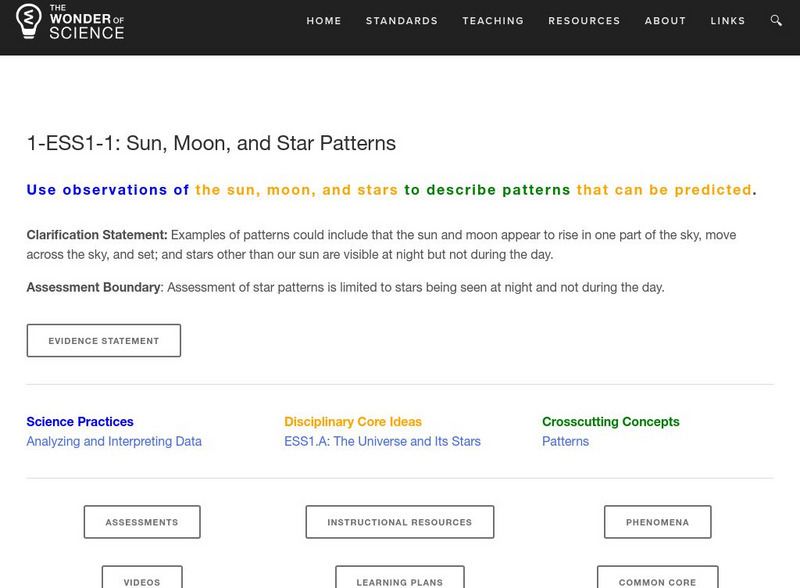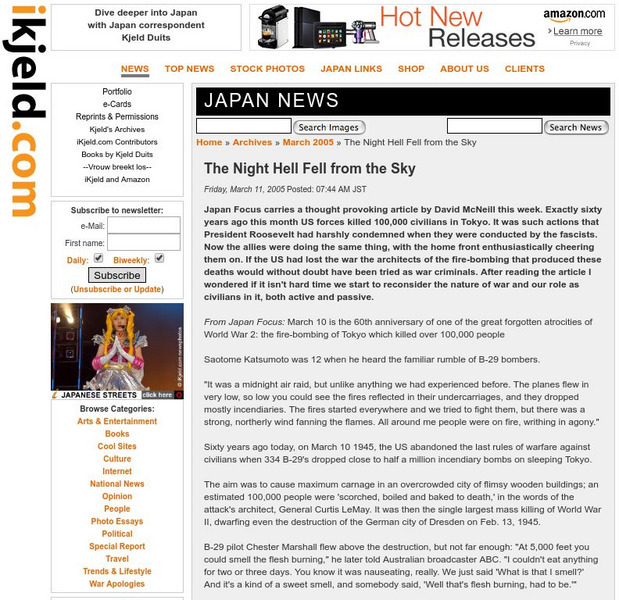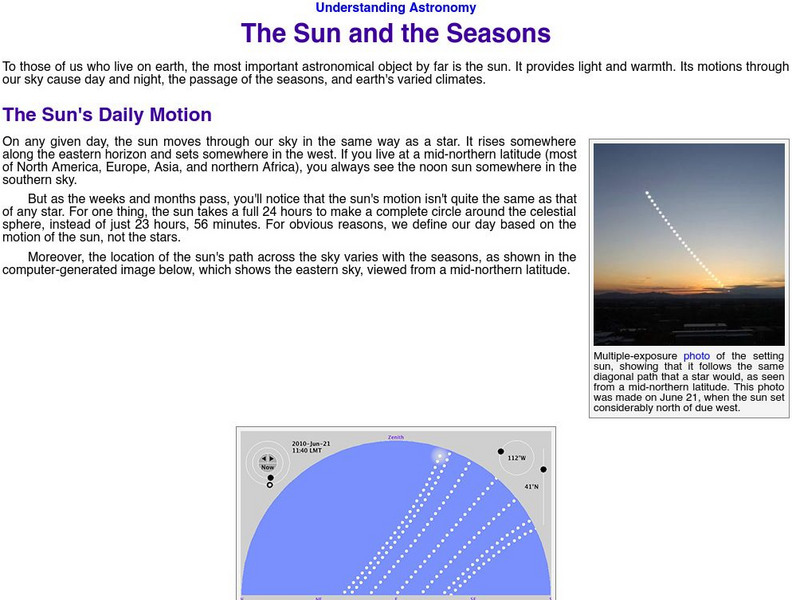CK-12 Foundation
Ck 12: First Grade Science: Telescopes
[Free Registration/Login may be required to access all resource tools.] Discusses how telescopes are constructed and how they are used to help see the night sky.
NASA
Astronomical Society of the Pacific: Telescope Treasure Hunt
This hands-on astronomy activity lets learners hunt for different objects in the night sky that contribute to stellar and planetary formation, using a Treasure List. They will learn how stars and their planets form and will find objects...
Environmental Education for Kids
Eek!: Be the Change: Light Pollution?
Light pollution is a particular concern in urban areas as people cannot enjoy looking at the night sky and all this light is being wasted.
Blackdog Media
Classic Reader: Author: Edwin Arlington Robinson
This site features the author Edwin Arlington Robinson including the full text of three poetry collections: The Children of the Night, The Man against the Sky, and The Three Taverns.
Scholastic
Scholastic: Science Explorations: Soar With Bats: Night Fliers of the Skies
Two levels of exploration take you on a nighttime bat investigation, offer important vocabulary and definitions, provide a library of articles, and list ideas for bat research and observations in parks and zoos.
E-learning for Kids
E Learning for Kids: Science: Antarctica: Describe the Life Cycle of Stars
Discover the stars with Peter. At his mom's research center, help Peter learn constellations and learn about characteristics of stars.
American Association of Physics Teachers
Com Padre Digital Library: Open Source Physics: Astronomy: Sidereal Solar Day
A computer based simulation demonstrating the difference between a sidereal day and a solar day.
American Museum of Natural History
American Museum of Natural History: O Logy: Stuff to Do: Stargazing
Get started on the road to becoming an expert stargazer by following these recommendations for identifying stars, planets, and constellations. Includes an example of a journal that can be used as a record of your investigations.
Other
Chrome Experiments: 100,000 Stars
Zoom in and out to explore our galaxy in this interactive 3D visualization of the stellar neighborhood, including over 100,000 nearby stars.
Education.com
Education.com: Star Unit [Pdf]
[Free Registration/Login Required] In this lesson, 5th graders will demonstrate their understanding of constellation patterns and earth movement by writing and illustrating a legend about a specific constellation.
PBS
Pbs Teachers: Voyage to the Mystery Moon
Observe the night sky and speculate the distance between the Earth and its moon and Saturn and its moon. Explore how scientists have used robots to learn about celestial bodies, and conduct research about one of Saturn's moons.
Sophia Learning
Sophia: Constellations: Lesson 2
This lesson will demonstrate how to predict constellations in the night sky. It is 2 of 4 in the series titled "Constellations."
Sophia Learning
Sophia: Constellations: Lesson 3
This lesson will demonstrate how to predict constellations in the night sky. It is 3 of 4 in the series titled "Constellations."
Sophia Learning
Sophia: Constellations: Lesson 1
This lesson will demonstrate how to predict constellations in the night sky. It is 1 of 4 in the series titled "Constellations."
Sophia Learning
Sophia: Constellations: Lesson 4
This lesson will demonstrate how to predict constellations in the night sky. It is 4 of 4 in the series titled "Constellations."
Education.com
Education.com: How Is a Star Born? [Pdf]
[Free Registration/Login Required] Have you ever looked into the night sky and wondered where all those millions and millions of stars come from? Find out here with a mini astronomy lesson! You'll discover what stars are made of and how...
The Wonder of Science
The Wonder of Science: 1 Ess1 1: Sun, Moon, and Star Patterns
The NSTA vetted source includes resources to help students describe patterns of the sun, moon, and stars using observation. Included are assessment ideas, videos, examples, lesson plans, and photos of student work.
Other
Japan News: The Night Hell Fell From the Sky
A powerful article written for a Japanese publication about an event rarely touched in World War 2 history. That is the fire bombing of Tokyo, which killed over 100,000 on March 10th, 1945. Students of the Cold War might recognize some...
PBS
Star Map
This star map has five different constellations along with four newly discovered solar systems. If you are located in the northern hemisphere you can use this resource to locate stars.
Sophia Learning
Sophia: Bill Nye: Once in a Mega Moon
Bill Nye explains why the moon appears smaller when it is higher in the sky, and he presents a Home Demo experiment that proves its an illusion. The experiment requires a bright moon on a clear night, a stiff piece of cardboard, and a...
Better Lesson
Better Lesson: Our Stars
In this lesson, students will observe and communicate how the stars are in the sky both day and night. The extremely detailed lesson includes photos and videos of the lesson in actions, examples of student's work, materials, parent...
Other
Weber State University: The Sun and the Seasons
To those of us who live on earth, the most important astronomical object by far is the sun. This article explains how the motion of the sun through our sky cause day and night, the passage of the seasons, and earth's varied climates.
Curated OER
Science Kids: Science Images: Shanghai World Financial Center, China
The Shanghai World Financial Center in China is one of the tallest buildings in the world. Built in 2008, it reaches 492 metres (1614 feet) in height and contains 101 floors. The skyscraper is used for a number of uses, from shopping...
Curated OER
Science Kids: Science Images: Telescope
This photo shows a common telescope used to observe the stars and other astronomy related objects seen in the night sky such as planets, moons and comets.
Other popular searches
- Day and Night Sky
- The Night Sky
- Night Sky Myths
- Observing the Night Sky
- Night Sky 2nd Grade
- Observe the Night Sky
- Night Sky Counting Book
- Day Night Sky
- Day Sky Night Sky
- Night Sky Viewing
- Solar System Night Sky
- Stars, Night Sky




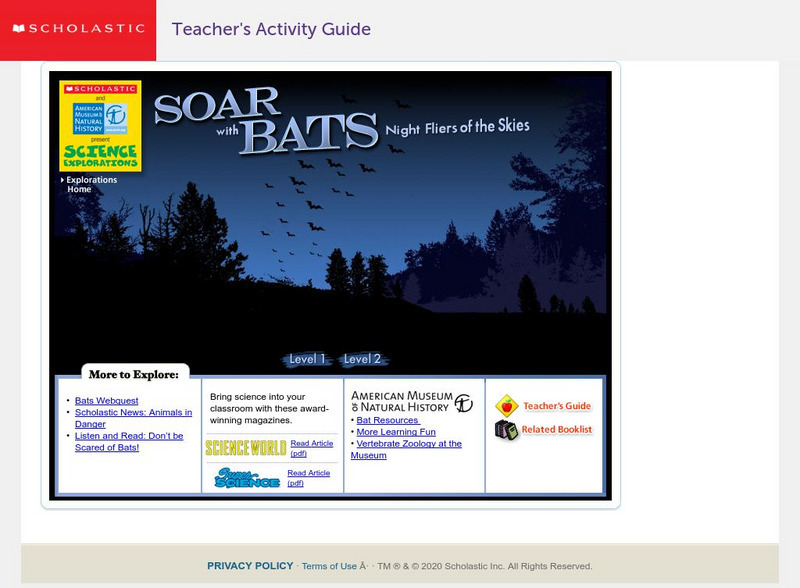


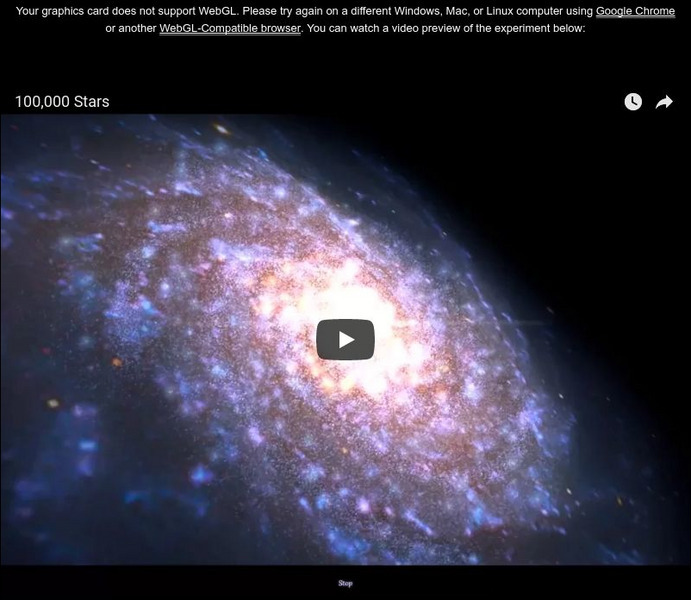

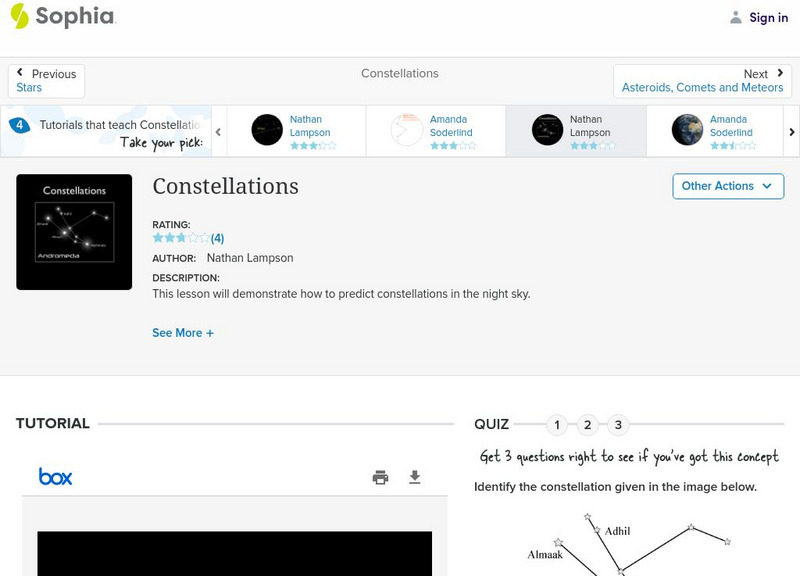

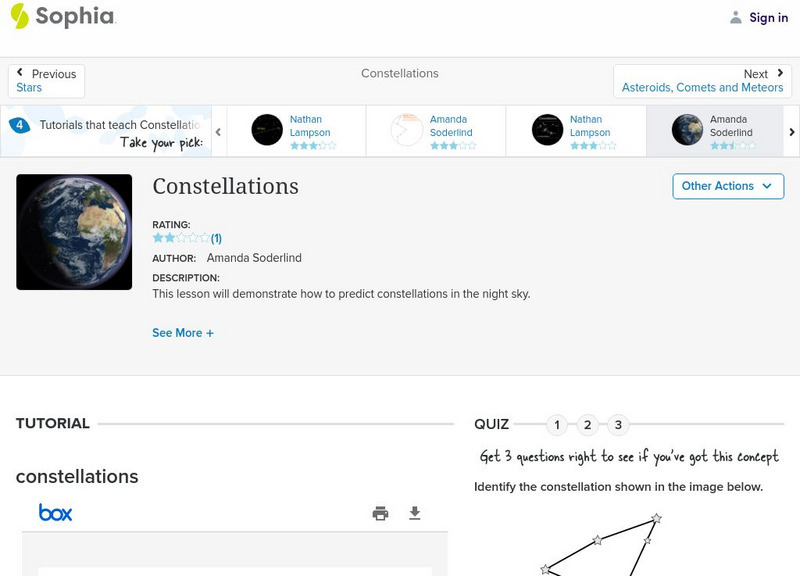
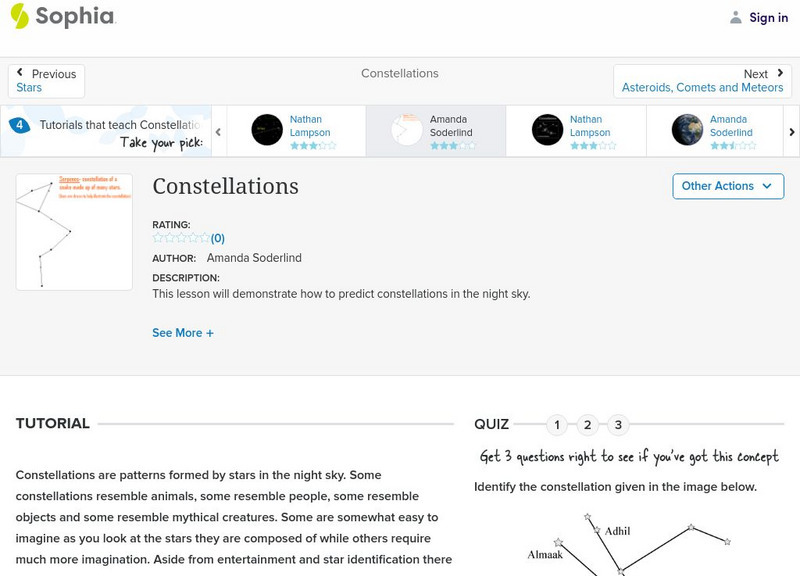
![Education.com: How Is a Star Born? [Pdf] Activity Education.com: How Is a Star Born? [Pdf] Activity](https://content.lessonplanet.com/knovation/original/237985-b9e54e09ab528f1f1541164e7a804ddd.jpg?1661360620)
